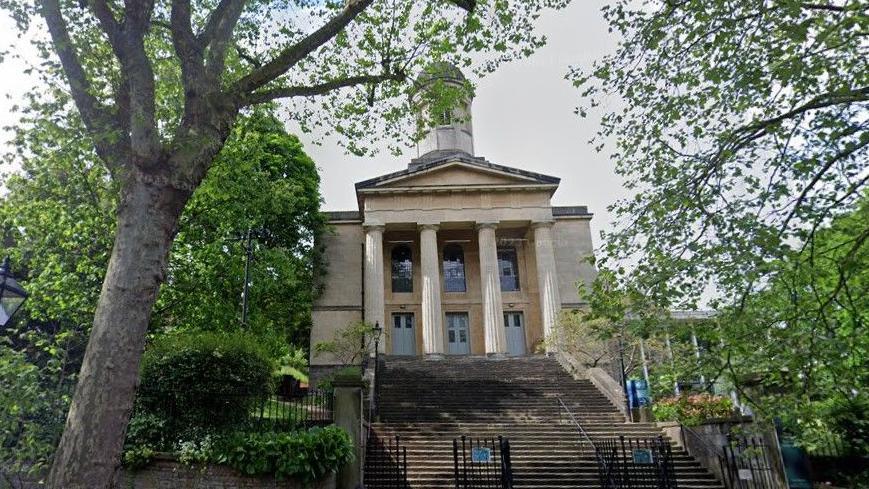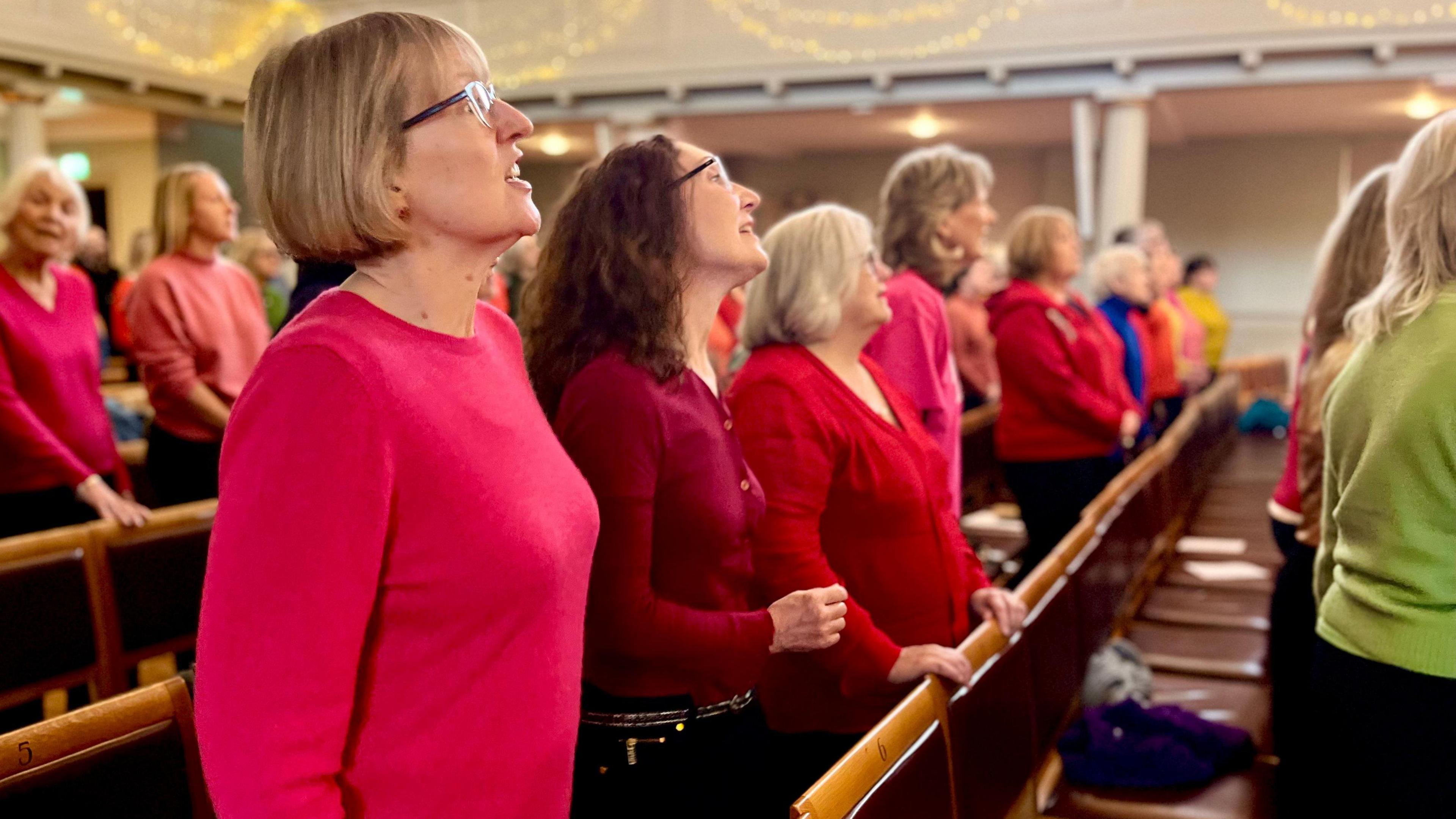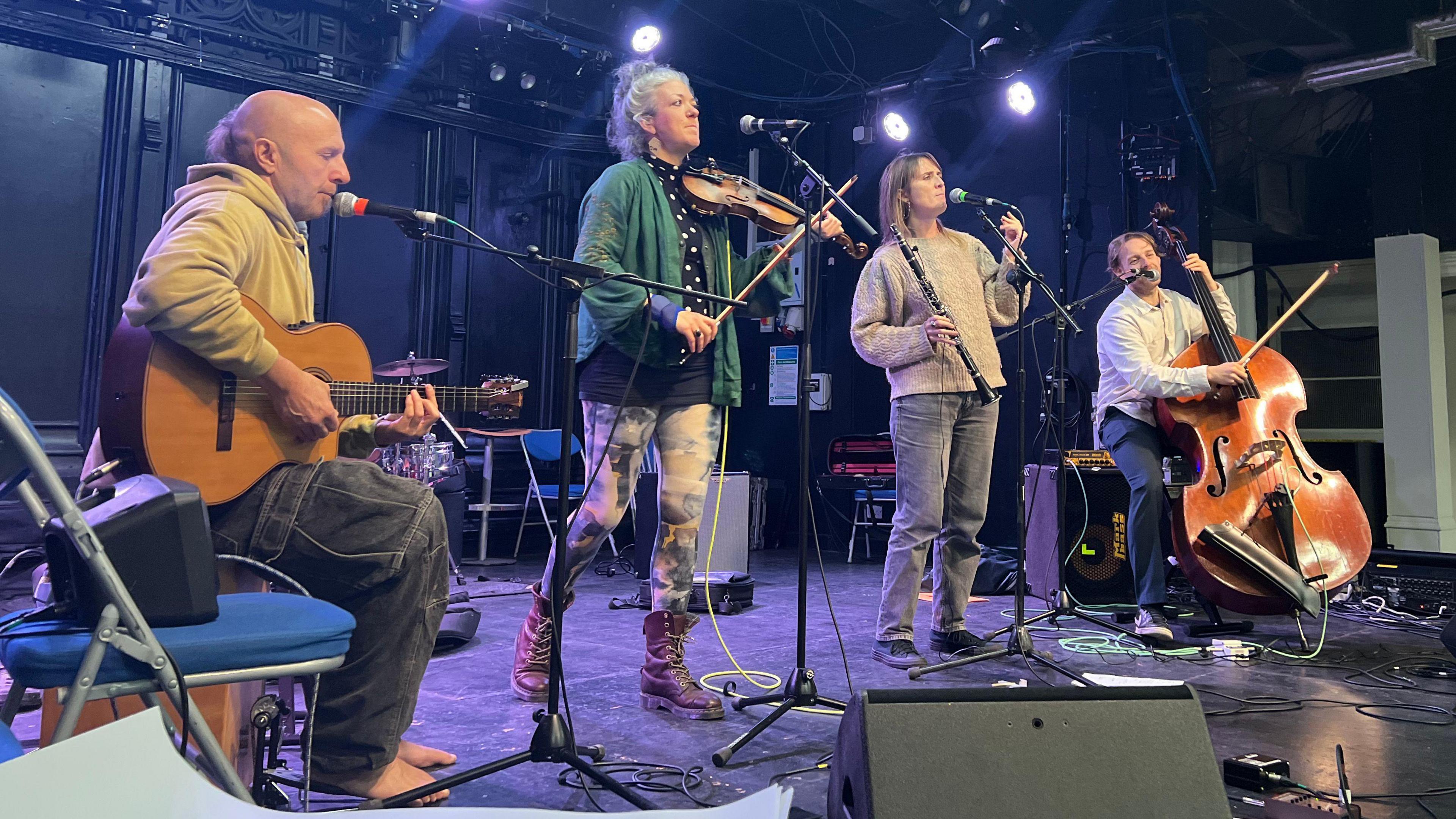Heart rates to be recorded in live music study

The research will take place at concerts in St George's Bristol
- Published
Concert goers are being wired up with special heart rate monitors as part of a new study into the effects of live music on the human body.
The experiment will compare reactions between people watching the performances live and others watching on a stream in a separate room.
Scientists from the Univeristy of Bristol and Bath, who are part of the MyWorld project, external, will carry out the tests at St George's Bristol.
Prof Ian Gilchrist said the study will look at any differences in audience experience between the two groups.
'Synchronised heart rates'
"We know that when audience members are immersed or engaged in content their heart rates become synchronised which is amazing," said Prof Gilchrist.
"So this means we can use the heart rate as a marker of how engaged audiences are.
"We also want to use this event as a way to amplify locally, regionally, but also nationally how important live events are and how important venues like this amazing venue are to our community and city.
"We know that since the pandemic a number of live venues had reduced numbers turning up to events so we want to really highlight what's special about the live experience."
MyWorld is a government-funded project based in the south west and aims to deliver "science engineering technology to boost the creative industries in our region".
The next research concert with Bristol-based trio Yetii, takes place at St George's Bristol on Friday.
Get in touch
Tell us which stories we should cover in Bristol
Follow BBC Bristol on Facebook, external, X, external and Instagram, external. Send your story ideas to us on email or via WhatsApp on 0800 313 4630.
Related topics
Related stories
- Published23 December 2024

- Published25 November 2024
